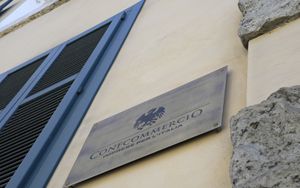(Finance) – Il new EU regulation on packaging, which will be discussed in the trilogue at the beginning of March, raises many concerns and, in the absence of significant changes, risks overwhelming entire sectors of our economy. The general orientation approved by Environment Council in fact, it is affected by an ideological approach and proposes inadequate rules with respect to the economic and social context of our country.
Those who would suffer the greatest damage would be all users of packaging and, in particular, companies in the food supply chain, small, medium and large-scale organized distribution, catering, vending, entertainment and tourism operators and many others. compartments. Furthermore, the Council’s position risks leading to a fragmented European market and, paradoxically, to the production of a greater quantity of packaging waste, which is difficult to recycle. Furthermore, the ban on single-use packagingconsidered more polluting, would seem to be disavowed by the impact study just published by the Commission which shows that this type of packaging, in many cases, has a lower impact on climate change than multi-use packaging.
For this reason it is desirable that the European negotiations adequately take into account the reasons of the companies and the position of the Parliament on single-use and recycling/reuse and review some rules of the provision. And how much we read in a note from Confcommercio on the proposal to revise the regulation on packaging and packaging waste currently under discussion in the EU between Parliament, Council and Commission.
Among the most critical aspects – continues the note – the obligation for HORECA (Hotellerie-Restaurant-Cafè) operators, with a surface area exceeding 100m2, to collect all reusable packaging free of charge and manage the return to the depots resulting in very significant economic burdens; the right, recognized to consumers, to bring their own take-away containers into stores, a proposal to be eliminated to protect the health and food safety of customers and staff; the obligation of the recycling guarantee system which, despite the exemption provided for member states with a separate collection rate above 78% by 2026, risks being of little use, economically harmful and difficult to implement for our country considering that the current collection rate is currently 65.2%; the substantial ban on using hygiene and toilet products that accommodation facilities now make available to guests.
For Confcommercio, both are highly problematic the introduction of stringent targets on reuse, and the imposition of bans and restrictions for numerous types of disposable packaging, which risk not only conflicting with the rules for the protection and conservation of food and the protection of consumer health, but also generating greater environmental pollution due to the return transport of packaging after use, as well as washing and drying that use more energy, more water and more resources than those needed to produce and use single-use packaging. To give an example, consider the ban on disposable cosmetics in accommodation facilities which, if implemented, would lead to the inevitable transition to refill systems which, in addition to being expensive, would pose liability problems: in fact, cases of contamination could be generated between products imported from outside by guests and, therefore, it would be difficult for operators to provide proof of non-responsibility.
